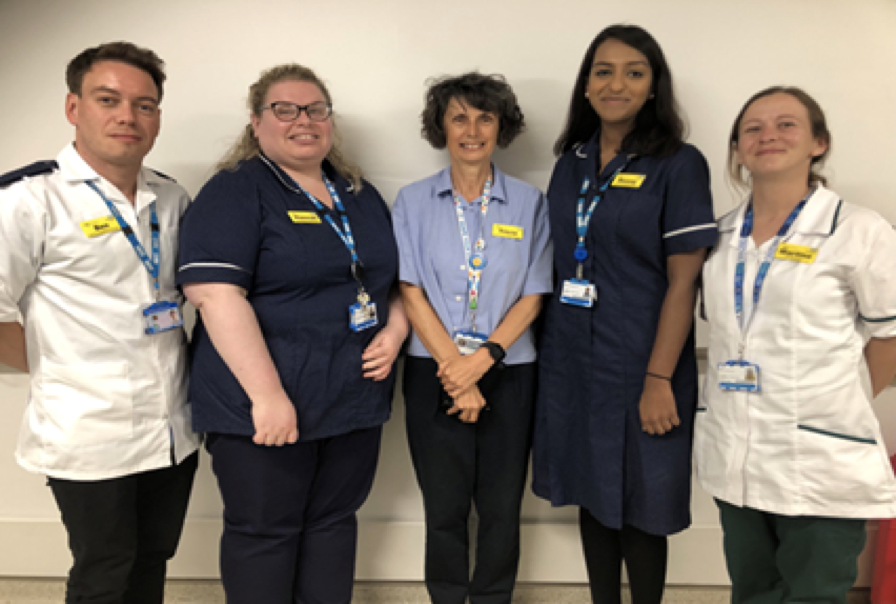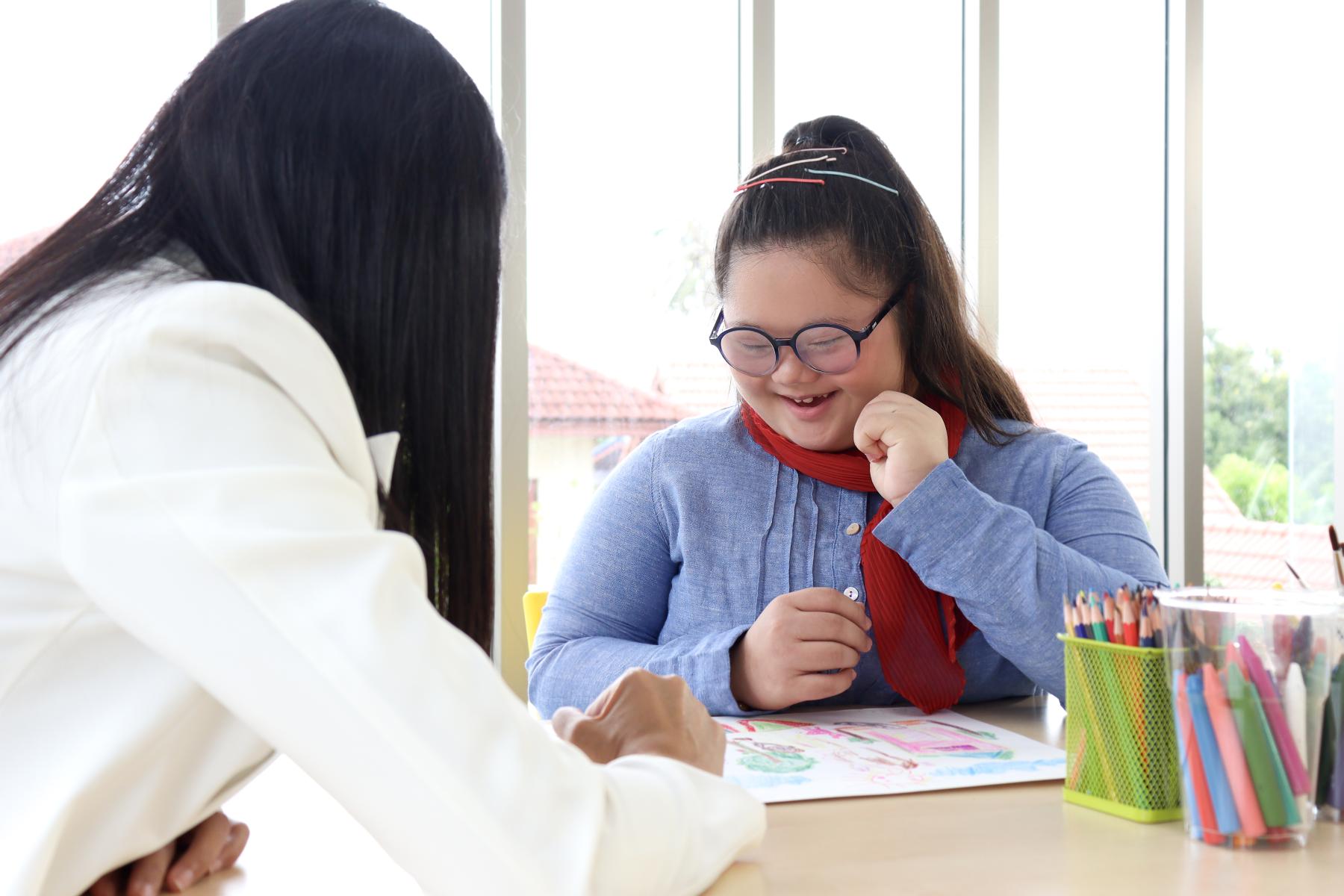Coming to hospital if you have a learning disability



We can help
Coming to hospital if you have a learning disability and or autism can make some people a bit scared or worried.
We have a learning Disability team that work across our hospitals with a designated Learning Disability Liaison nurse at each site, who you can contact before you come to Hospital.
The team can ensure your visit to any of our hospitals is a good one.
Contact Details
The Learning Disabilities Team can be contacted on
Call: 07713099156
Learning Disability Team Email
bartshealth.learningdisabilityreferralbh@nhs.net
Tricia Handley
Lead Nurse for Learning Disabilities
Mobile: 07713099156
Email: Patriciahandley@nhs.net
Reeny Mariampillai
Clinical Nurse Specialist at Whipps Cross & St. Bartholomew’s Hospital
Mobile: 0784 2322 657
Email: r.mariampillai@nhs.net
Hannah Elsdon
Learning Disability Nurse Practitioner at Newham Hospital
Mobile: 0784 2322 662
Email hannah.elsdon2@nhs.net
Martine Burrell
AHP Liaison Practitioner Learning Disabilities at Royal London Hospital
Tel: 07842 322 660
E-mail: martine.burrell@nhs.net
Ben Taylor
Education Nurse Practitioner - Education lead for learning Disabilities & Autism, Trust wide
Mobile: 07933171684
Email: ben.taylor11@nhs.net

The Hospital Passport has information about you and your carers so that you can make decisions with our staff and get the best help.

What is a hospital passport?
It helps us to make Reasonable Adjustments.
Reasonable adjustments are changes to the way we usually do things
The Hospital Passport can be completed by someone who knows you well.
How do I get a Hospital Passport?
Download the Hospital Passport
From hospital staff when you are admitted – but this is best done before you come to hospital
Your local Community Learning Disability Service
You can type into the document or handwrite. Typing means you can update it when things change
Don’t forget to tell us if you have any worries about coming to hospital
We want to give you the best services in our hospitals.
If you tell us what you think, you can help us make our services better. It will not affect the help you get from us.

Compliments
A compliment is when you tell someone what you are happy or pleased with.
Concerns
A concern is a worry or something you want to talk to someone about.
Complaints
A complaint is something you are unhappy about - it's important we know when things are not working well.
Contacting us
Sometimes talking face to face with the people providing the service can help solve an issue straight away.
If you wish to see someone from our Patient Advice and Liaison Service in person please contact one of the telephone numbers given below.
The Royal London and Mile End Hospital: 020 3594 2040
Newham and St Bartholomew’s Hospital: 020 7363 9292
Whipps Cross Hospital: 020 7535 6438
We recognise that family carers play a vital and incr easing role in our society.
easing role in our society.
The NHS Constitution and the NHS Commitment to Carers recognise the importance of carers, and the need to ensure you are seen as partners in care, and often experts in the knowledge you bring about your family member.
By working together in partnership we recognise we can deliver an improved experience and better outcomes for your family member and yourself. We have a Carers' Policy: Recognising Carers as Partners in Care.
Frequently Asked Questions
My daughter is being admitted to a ward and she needs me to stay?
We have open access visiting if you wish to stay overnight and continue caring for your daughter. Let staff know in A&E or at your outpatient appointment if it is a planned admission.
I have heard I can get a sleeper chair for an overnight stay, is this correct?
We have two sleeper chairs each at Whipps Cross, Newham and The Royal London Hospital. We will do out best to make one of these available. Occasionally they are already in use. We are looking to increase the number across our sites.
I am happy to carry on with helping my son with his personal care, eating and drinking but I will need a break, can I get help?
We have a Carers' Plan which staff can discuss with you. This will help us by knowing what help you will continue to give but also how you can take care of yourself when you are staying, including breaks.
I have been told I no longer make decisions about my son's treatment as he is an adult, but I know him better than anyone else. How can I be involved?
If someone does not have an understanding (capacity) to make a decision about their care and treatment, the law says we need to involve family. Please be assured that your input is often essential.
I want to speak to the doctor about my daughter's treatment but am unable to visit during ward rounds when the doctor is there, what can I do?
Please speak to the nurse looking after your daughter and ask them to arrange a time for you to meet the doctor. The doctor looking after your daughter will then be able to fix a mutually agreed time. It is vitally important that you are kept up to date with care and treatment if your daughter does not have the capacity to make her own decisions.
I have been told that hospital needs to make reasonable adjustments for people who have learning disabilities. What does that mean?
By law, we need to ensure that people with disabilities get the same high-quality care and the same expected health outcomes as someone without a disability. This means we need to do some things a bit differently, for example, we allow carers to stay overnight, we see people at the beginning of a clinic to cut down on possible waiting, we can use easy read material to help the person understand.
My son has autism and doesn’t like noise. He finds hospitals very difficult, what can I do?
Letting us know in advance can be really helpful. You can contact the lead nurse for People with Learning Disabilities and agree what reasonable adjustments need to be made. You can also complete the Hospital Passport and give this to staff when you arrive.
National guidance tells us we need to put a Flag/Alert on our system that nurses and doctors can see telling us the person has a learning disability. We can add comments to this so if your son has to attend A&E we will know if he has extreme difficulty waiting in a busy area where it may be noisy.
The Hospital Passport is a great way to tell A&E staff what your son's needs are if he has to attend. It can be completed online and updated easily when you need to.